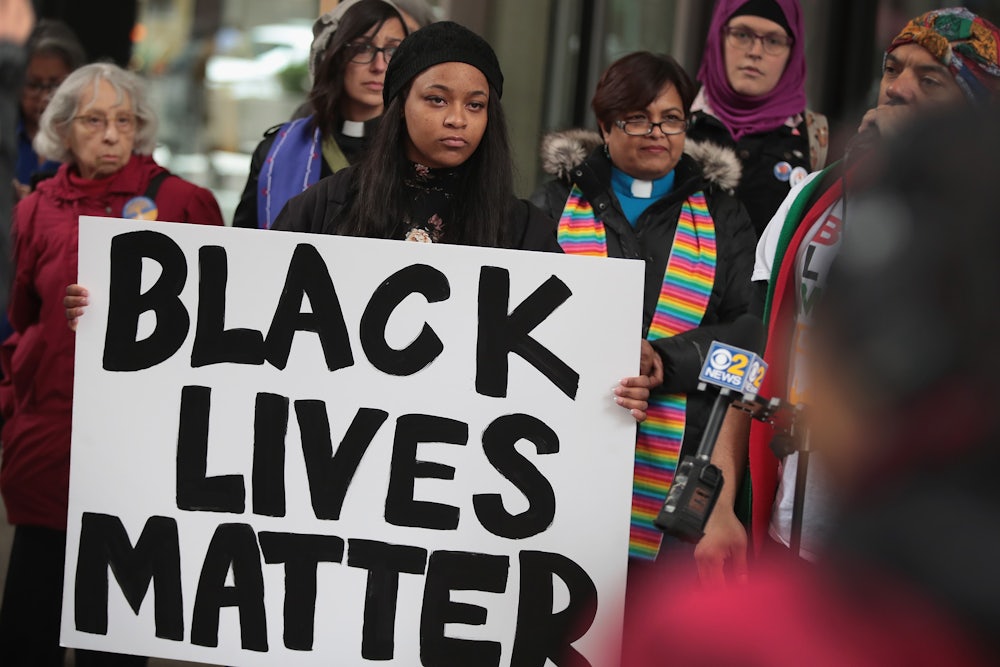Lyndon Johnson first commissioned the Kerner Report to investigate the root causes of 1967’s race riots, but Johnson and other policymakers largely ignored the commission’s findings and policy recommendations upon their release in 1968. The Kerner Report found that white racism had sparked the riots. Police brutality, an inadequate social safety net, a broken criminal justice system—these were the forces that pushed people of color into the streets.
Fifty years later, the Economic Policy Institute has released a report commemorating Kerner’s 50th anniversary, and while it found that rates of educational attainment among African-Americans have increased, African-American wages still lag far behind those of white workers. In other areas, progress is stagnant:
With respect to homeownership, unemployment, and incarceration, America has failed to deliver any progress for African Americans over the last five decades. In these areas, their situation has either failed to improve relative to whites or has worsened. In 2017 the black unemployment rate was 7.5 percent, up from 6.7 percent in 1968, and is still roughly twice the white unemployment rate. In 2015, the black homeownership rate was just over 40 percent, virtually unchanged since 1968, and trailing a full 30 points behind the white homeownership rate, which saw modest gains over the same period. And the share of African Americans in prison or jail almost tripled between 1968 and 2016 and is currently more than six times the white incarceration rate.
Republican and Democratic administrations alike have exacerbated rather than resolved the problems the Kerner Commission identified. “This deepening racial division is not inevitable. The movement apart can be reversed. Choice is still possible. Our principal task is to define that choice and to press for a national resolution,” the commission wrote. Now the task is ours.
